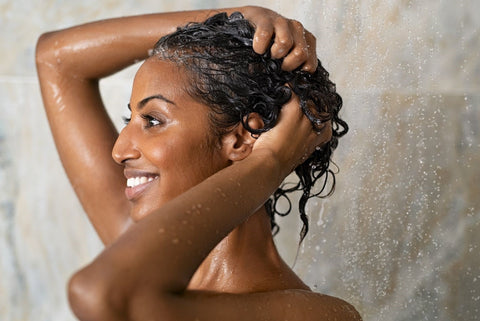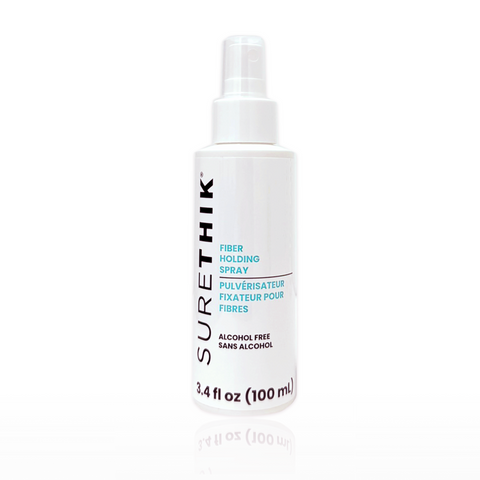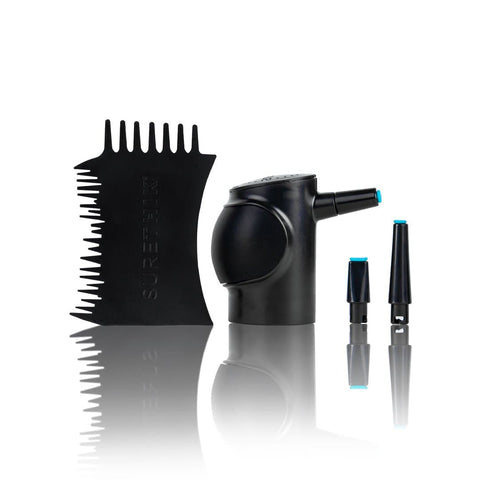
Protein Vs Moisture: What Is The Perfect Balance?
Ever walk down a beauty store and get overwhelmed with the crazy number of options of products, shampoos, and conditioners? Well, we don't blame you. You may have asked yourself which product would best suit you? or does my hair lack moisture or protein? We've got you covered if you're perplexed. Continue reading to learn how to tell the difference between moisture and protein in hair care products. We'll also show you how to do a simple test to determine what your hair requires the most.
WHAT IS THE DIFFERENCE: PROTEIN VS MOISTURE?
Protein and hydration are both beneficial when it comes to repairing damaged hair. Hair that is deficient in protein or moisture loses its suppleness, making it more prone to breaking. Some types of damaged hair, on the other hand, will benefit primarily from protein-based solutions. In contrast, different types of hair damage will require moisture because protein and moisture are diametrically opposed at the atomic level. Disulfide linkages are what hold each strand of hair together. Proteins strengthen these links, making hair more resistant to breakage. On the other hand, moisture hydrates these connections, improving your hair's overall appearance and feel.

MOISTURE: DOES MY HAIR NEED IT?
Moisture-deficient hair might feel dry, brittle, or scratchy. In addition, it may appear dull and tangle easily, and be susceptible to split ends. Some reasons as to why one might need moisture are the following:
1: Dry Scalp: When the scalp does not have enough oil, it becomes dry. Itching, flaking, and irritation are all common symptoms of dry skin. In addition, because oil from the scalp helps condition the hair, it can also make it look dry.
2: Dandruff: The scalp sheds dead skin cells just like the rest of the body. Dandruff develops when this process accelerates. Dead skin cells make up dandruff flakes; excessive cleaning skin problems, such as eczema, are exacerbated by dry air, especially during the winter months.
3: Heat Damage: Overuse of heat products like curling irons and straighteners, as well as chemical damage, can cause hair to become dry. However, some hair varieties, such as curly and textured hair, are inherently drier and require more frequent moisturizing.
Using oils and butter treatments can help hydrate parched hair, making it look smoother and more elastic.
HOME REMEDIES & TREATMENTS:
Dry hair occurs when your scalp produces insufficient oil to nourish your hair or when your hair allows moisture to escape. Let's look at ways you can resolve this problem and get complete and healthy hair!
1: Vitamins: The B vitamin, also known as biotin, is crucial for keeping your scalp primed and ready for good hair development. This nutrient shortage can cause a dry, itchy scalp and weak, dehydrated, and easily breakable hair. If your hair appears thin, dry, or brittle, you may be deficient in biotin.
2: Natural Oils: Hair is divided into three layers. Natural oils are produced by the outermost layer, making hair look healthy and shiny and protecting it from breaking. Swimming in chlorinated water, living in a dry area, chemical straightening or perming, or using hot styling tools can all cause this layer to break down. Hair that has broken down will feel dry and appear dull. Coconut Oil is high in moisturizing omega-3 fatty acids and vitamin E, which add shine to hide and are essential for scalp health. Soft hair can be caused by poor scalp health. Almond Oil is high in omega-9 fatty acids (which add shine and encourage new hair development), vitamin E, and protein, which help strengthen and prevent hair breakage. This nut-derived oil softens hair and protects and moisturizes it with its emollient properties.


Bad Alcohol: Bad alcohol ingredients can evaporate quickly, allowing the styling agents to bind and operate more effectively, but on the downside, your hair is literally sucked dry. In addition, with continued use, the cuticle roughens, making the hair dry, brittle, and frizzy and putting it at risk of breakage.
PROTEIN: DOES MY HAIR NEED IT?
Our hair is made up of 80-90 percent protein, specifically keratin. Protein provides the strength and structure that our curls require and other hair textures. Unfortunately, there are so many hair products on the market nowadays that it's easy to become overwhelmed. One of the things that can help you cut through the clutter and figure out which one is appropriate for you is being aware of your strands' specific needs. This is a common issue can be affecting all hair types and texture.
To begin, keratin is a protein found in all hair. Damage to the protein of the hair shaft can be caused by external forces (particularly chemical treatments like hair color and relaxers), making it prone to breakage. A protein treatment can help chemically damaged hair that feels mushy or cotton candy-like.
1: Hair Elasticity: This signifies how healthy your hair is; each strand of hair has numerous layers, and moisture is stored in the cortex, which is in the hair's core. If your hair lacks elasticity, you may have asked yourself, "why is it so difficult to curl my hair?" or "why am I losing my natural texture? This could be due to a loss of flexibility in your hair. When your hair loses elasticity, it's usually a sign that it needs to be treated with protein. First, wet the strand of your hair (still attached to your head) to see how elastic it is. Then, stretch the hair once it's moist. Your strands are balanced if they bounce back to their original length without breaking. If the strand does not bounce back, seems limp, or breaks, it desperately needs protein. You can increase the elasticity of your hair by improving its protein levels, which makes it more bouncy, full of life, and simpler to style.
2: Chemical Treatment: The hair color formula can change the texture of your hair when you color it. If you color your hair frequently enough, the hair's connections can break, resulting in split ends and hair damage. Request a protein treatment from your hairdresser before the color application to provide your hair a better foundation for the color. You may assist keep your strands strong during the chemical service by doing this extra step.
3: Limp Hair: Hair that is stringy, flat, or limp clearly indicates that it needs protein therapy. Hair should generally be solid and complete, so if it begins to droop, pay attention. You can revive your strands and restore their vitality by reintroducing protein to them.
HOME REMEDIES & TREATMENTS:
1: Hair Mask: Many different hair masks help to target specific hair problems. You can use a variety of homemade protein hair treatments. Many of which are produced with natural or household ingredients to cure damaged hair or add protein to healthy hair. Protein hair treatments made at home are great for feeding the outside of the hair and strengthening each hair shaft on the outside to help avoid breaking and fallout. Hot Oil coconut, almond, castor, and jojoba are high in vitamin E and antioxidants, which assist in sealing in moisture and repair damage to the outside hair layer or cuticle. Using hot oil will help restore dry hair, will help strengthen, and provide a natural shine. Recommended to use once or twice a week.

2: Hair Product: Keratin is the structural building block of hair, so you can imagine how crucial it is for the general health of your hair. The more you color, flat iron, blow-dry, and heat style your hair, the more prone you are to have damaged cuticle areas. SureThik is a Sulfate-free, deep cleansing, and energizing solutions made exclusively for men and women. Our Root Penetrating Shampoos clean and rejuvenate the scalp by penetrating deep into the follicle without the use of toxic sulphates. Hair that has been colored or chemically treated is safe to use. Antioxidants help to strengthen hair that is weak or damaged from the roots up. Hair and scalp are left feeling clean and revitalized. After each wash, the scalp will be free of toxins, bacteria, sebum, and debris.






